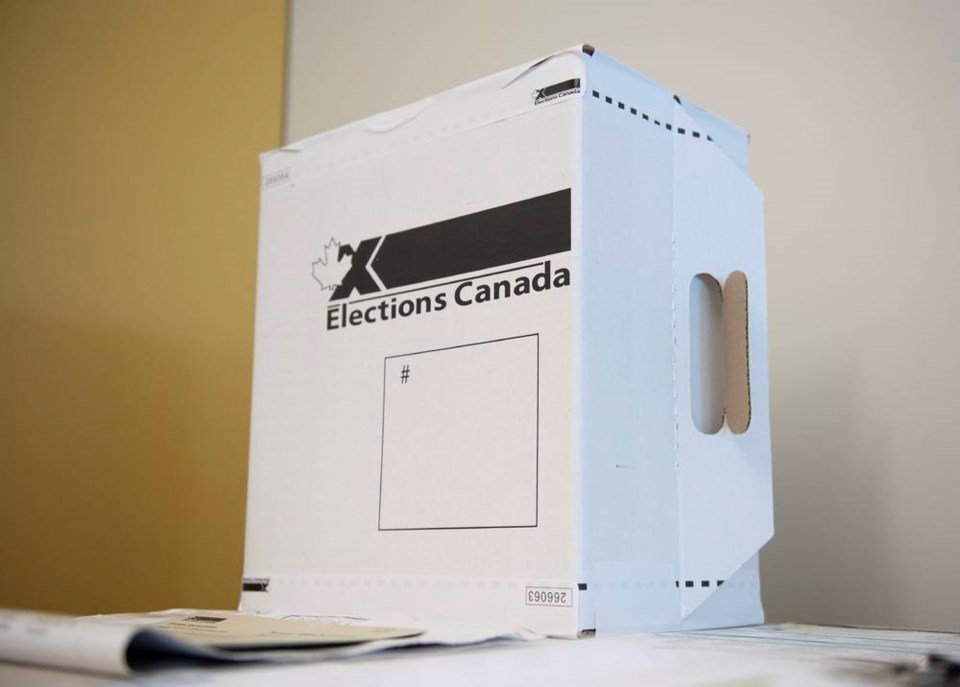Here’s something new: It appears female candidates will dominate Vancouver Island federal election ballots.
Each of the four main parties — that is, those that have elected MPs in the past — will field a majority of women on the Island, where there are seven ridings. The roster includes six Conservatives, five Liberals, four New Democrats and four Greens. That’s a total of 19 women, compared with 10 in the 2019 campaign and 11 in 2015.
The electoral bingo card was rounded out Thursday when the Conservatives announced their Victoria candidate: Hannah Hodson, who was once communications co-ordinator for then-premier Christy Clark, and who now serves as assistant to B.C. Conservative MP Dan Albas in Ottawa.
She is also transgender — not the traditional image of a Conservative candidate. Perhaps not, she replies, but that image is out of date. These are not, she says, “your grandfather’s Conservatives.”
“As a transgender Canadian, I have faced many struggles, from difficulty accessing gender-affirming health care to being subjected to hateful comments,” Hodson said in a news release that described her as being passionate about forwarding LGBTQ rights, protecting the environment and tackling affordability issues that have driven up the cost of living.
“I want to show people like me, and anyone who feels they have been ignored, that I will fight for them.”
Her nomination came shortly after that of Liberal Jennifer Grenz in North Island-Powell River. Grenz, who has a PhD in integrated studies in land and food systems, founded Greener This Side, an invasive-species management, ecological restoration, and food security planning company.
The addition of Grenz means three of the Liberals’ five female Island candidates will be Indigenous. The other two are Sherri Moore-Arbour in Saanich-Gulf Islands and Michelle Corfield in Nanaimo-Ladysmith.
Now, the nomination deadline isn’t until Aug. 30, so there may still end up being more male candidates than female on the Island. All seven nominees of the second-time-around People’s Party of Canada are men, as are some of the handful of Communists, Animal Protection Party and Maverick Party hopefuls who have indicated they will run — but none has made much of a dent at the ballot box in the past.
Parliament has not always been a welcoming place for women. Ontario’s Agnes Macphail was voted in as Canada’s first female MP in 1921, but no B.C. woman was elected until New Democrat Grace MacInnis in 1965.
It wasn’t until 1988 that Vancouver Island elected its first female MP, New Democrat Lynn Hunter in Saanich-Gulf Islands. (In the 2019 election there were three: Green Elizabeth May in Hunter’s old riding and New Democrat Rachel Blaney in North Island-Powell River, and Laurel Collins in Victoria.)
Winning election was only the first challenge. In a tribute to Saturna Island’s Pat Carney in 2007, fellow Tory senator Hugh Segal spoke of the way she had been called aloof, stubborn and difficult after arriving in the capital. “These terms were used by men to diminish women, particularly in the 1970s and 1980s when a paternalistic, old boys, golf club, male Ottawa culture deeply resisted strong, competent and take-no-nonsense women.”
The House of Commons was hardly representative then. When Carney was first elected in 1980 as the MP for Vancouver Centre, she was the only mother in Parliament who lived west of the Lakehead. Every week she would fly back home to the Lower Mainland, where she would cook a week’s worth of suppers for her 15-year-old son.
Other barriers have yet to be cleared. Port Alberni-born Kim Campbell remains the lone female to have served as prime minister, and even that comes with an asterisk. She did the job for four months in 1993 after the resignation of Brian Mulroney. With the Progressive Conservative party deeply unpopular, it was like being stuck behind the wheel of a car that was up to its axles in mud.
Today, maybe there’s a bit more traction.



